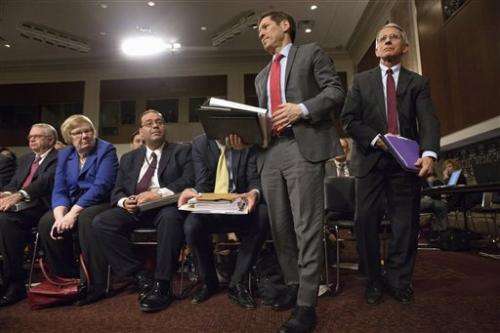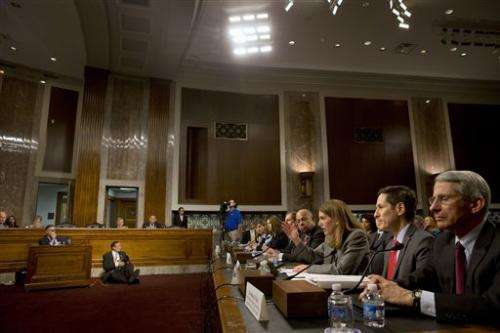USAID urges emergency funds for Ebola hot spots

A U.S. official estimates there are 3,000 active cases of Ebola in West Africa, many in small clusters dotted throughout the countryside that require a more rapid and flexible response.
"This is a fast-moving and adaptable viral epidemic. We need to be fast-moving and adaptable," Rajiv Shah, administrator of the U.S. Agency for International Development, told the House Foreign Affairs Committee Thursday.
Shah spoke as Congress considers the Obama administration's request for $6.2 billion in emergency aid to fight Ebola in West Africa and shore up U.S. preparedness.
"We really do require these resources to be successful. Frankly, we will not succeed without them," said Shah, whose agency is leading the U.S. response in West Africa.
Across town, Vice President Joe Biden and other administration officials met with representatives of humanitarian, faith and non-governmental organizations at the White House complex and urged them to use their influence to press members of Congress for quick action on the administration's emergency aid request.
"Your word carries a lot more weight in this environment, in this political environment," Biden said, adding that the $6.2 billion request had been carefully crafted to meet specific needs.
Ron Klain, the Obama administration's Ebola response coordinator, told the aid groups that despite some pockets of good news overseas, "We are not at the beginning of the end or even the end of the beginning. We are in the throes of this effort in West Africa, with interventions that can work but a lot of work to be done."

Without more funding, Shah said, his own agency would have to shift money that fights famine in other countries toward fighting Ebola.
The spending request also would help fund long-anticipated clinical trials of a possible Ebola vaccine.
Results of an initial U.S. safety study proved promising enough that next-step testing should begin in Liberia and Sierra Leone by January, Dr. Anthony Fauci of the National Institutes of Health told another congressional committee on Wednesday.
If those new studies go well, "we could know by the middle of 2015 whether or not we have an effective vaccine," said Fauci, director of NIH's National Institute of Allergy and Infectious Diseases.
The vaccine question aside, Fauci said NIH brought together doctors who had cared for the nine Ebola patients treated in the U.S. to look at records of experimental treatments they received.
"It was clear we had no idea what works or what doesn't work," he said, calling that a "strong argument" for clinical trials.
© 2014 The Associated Press. All rights reserved.


















